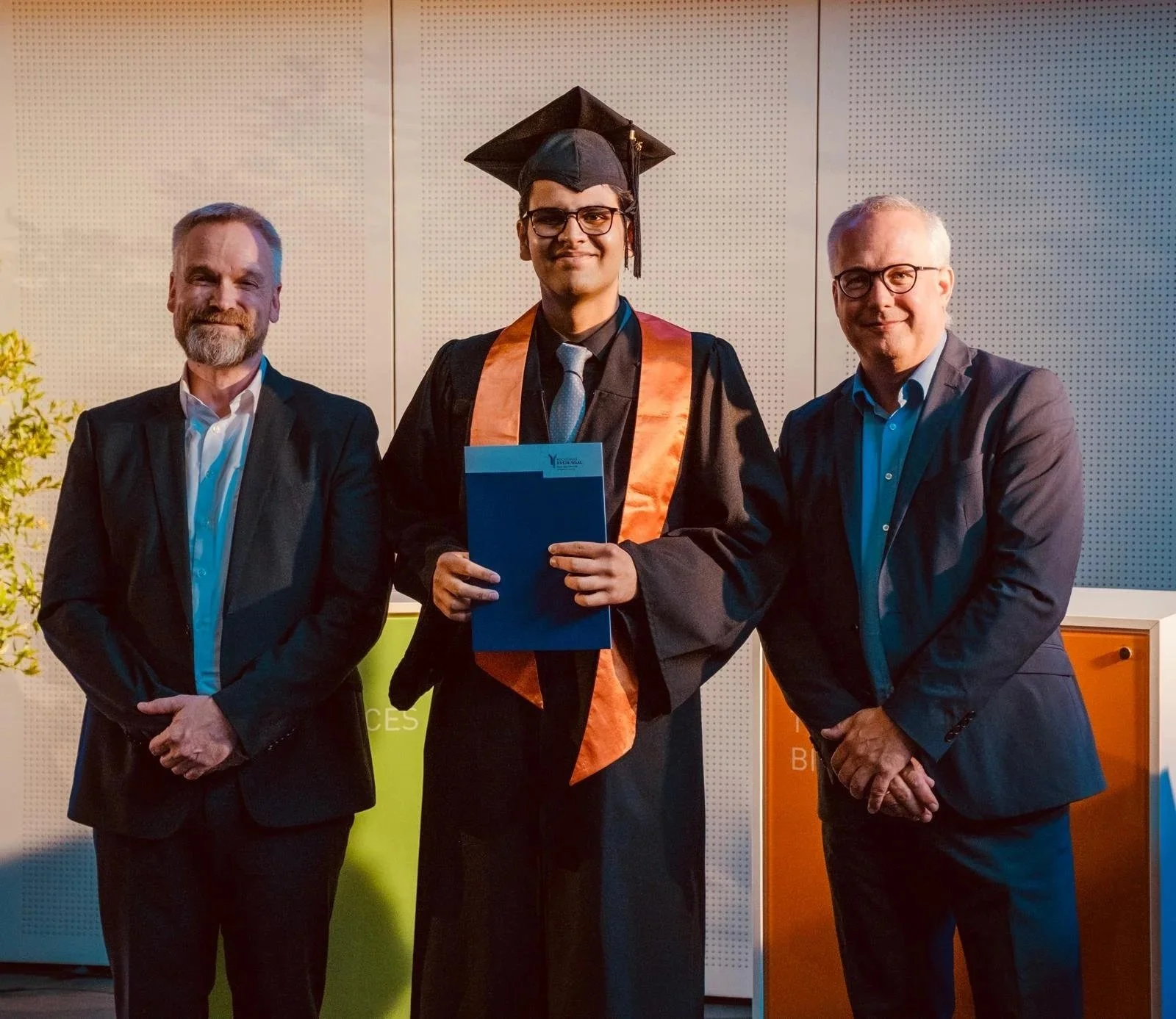About Me
Aim high, persist, measure progress. That’s the job. In engineering, I use tight experiments and repeated trials to move a design from “almost” to “reliable.”
I’m Revant—a passionate engineer dedicated to transforming meticulous experimental methodologies into dependable robotic systems. My bachelor’s thesis at the esteemed Fraunhofer Institute of Production Technology primarily focused on optimizing the advanced magnetic planar-drive 3D printer, specifically the Beckhoff XPlanar model. My research centered around the intricate design and manufacturing of polycaprolactone (PCL) scaffolds intended for biomedical implants. I delved deeply into critical aspects such as motion planning algorithms, thermal stability assessments, and establishing comprehensive parameter windows—all aimed at enhancing the dimensional fidelity of prints produced under stringent clean-room conditions.
In my previous role at Bosch Corporate Research, specifically within the AMP4 division, I investigated the phenomenon of hydrogen embrittlement. This involved conducting extensive micromechanical fatigue and tensile tests to evaluate material performance. I developed sophisticated MATLAB analysis pipelines to interpret the resulting data and establish correlations between microstructural characteristics and mechanical performance outcomes, providing invaluable insights into material behavior under stress.
My passion extends beyond engineering to education, as I thoroughly enjoy building and teaching others about robotics. I have successfully created projects such as a bipedal robot and a robotic hand, as well as engaged in solid modeling and finite element analysis (FEA) initiatives. In my roles as a student assistant, I have taught courses in MATLAB, Thermodynamics, and SOLIDWORKS, which has honed my ability to explain complex concepts in an accessible manner and design effective, repeatable workflows for my peers.
Currently, I am in the process of drafting a research paper titled “Vision as Veto,” which explores innovative methods for overhead perception in human-robot interaction (HRI). This project focuses on developing speed-and-separation monitoring systems to ensure safety for individuals in proximity to robots. As I pursue a Master’s degree in Robotics, I am particularly interested in bio-robotics, designing surgical and assistive devices, precision mechatronics, and the advancements of additive manufacturing techniques for medical applications.
„Not Failure, but a low aim is a crime!“
Contact Me
Share what you’re working on. If helpful, add the core problem, any constraints (time/budget/tools), and a brief definition of what “success” looks like for you.
